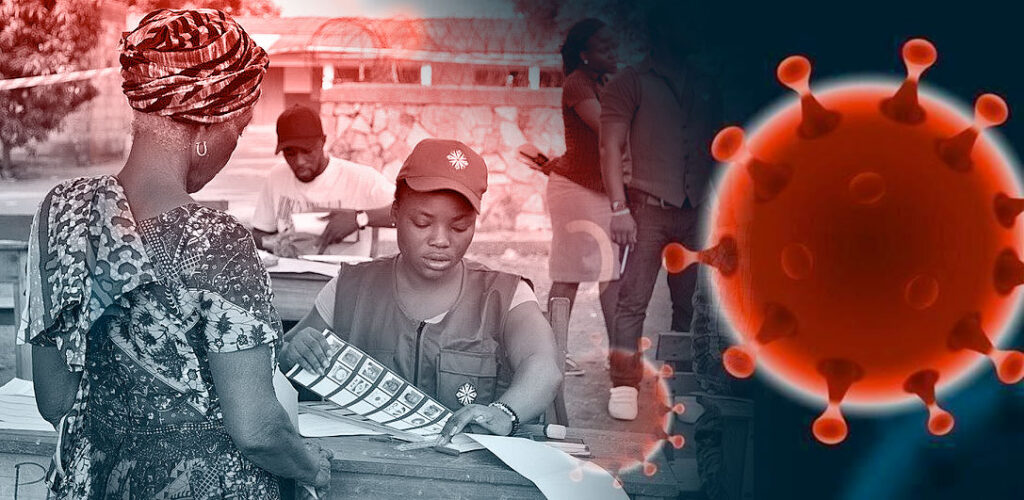The current covid-19 pandemic has undoubtedly had significant adverse effect on world democracies, especially elections scheduled this year, 2020. In order to protect the general public from spreading the virus during electioneering activities, there have been calls for countries to either postpone and re-schedule initially planned elections, or consider alternative voting processes and procedures. Per constitutional requirement, Ghana is scheduled to have its general elections (presidential and parliamentary) on 7th December, 2020. AIDRE’s current research project on COVID-19 and Elections, with Ghana in focus, seeks to investigate perception of voters towards the elections in the midst of COVID-19 pandemic, voter behaviour and preferences, and to among others, explain the issues are important and thus, may affect voters’ decisions in Ghana’s 2020 presidential and parliamentary elections.
Due to the COVID-19 pandemic, self-administered questionnaires were sent to respondents through electronic mails and social media platforms such as Facebook, LinkedIn, and WhatsApp, with a total of 1,958 individuals responding to the survey.
HIGHLIGHTS OF THE FINDINGS
1. Satisfaction with government’s COVID-19 measures
o High Satisfaction with COVID-19 measures
o Only 3% of respondents were not satisfied with COVID-19 measures
2. COVID-19 Measures likely to affect election 2020
o 69% of voters said government’s COVID-19 measures will influence their voting pattern
3. Postponement of December 2020 Election
o 38% of voters said the General election should not be postponed
o 36% of voters said the General election should be postponed due to COVID-19 pandemic
o 26% of voters are indifferent between postponement and non-postponement of the election
4. Majority of people who voted for NDC and NPP in 2016 will vote for the same party in 2020
o 80% of NDC and NPP voters in 2016 will vote for the same party in 2020
o Few voters in 2016 will change their voting pattern in 2020
o 17% of NDC voters in 2016 will vote for NPP in 2020
o 16% of NPP voters will vote for NDC in 2020
5. Low level of ‘skirt and blouse voting’ in 2020:
o 9% of those who will vote for the NDC Presidential candidate will vote for NPP parliamentary candidate
o 8% of those who will vote for the NPP Presidential candidate will vote for NDC parliamentary candidate
6. Education affects voting pattern
o Majority of voters with less than SHS education will vote for NDC
o NPP is popular with the educated
7. Education, economic stability, infrastructure and health are the main reasons for voting pattern in 2020
o For the poorest, infrastructure is the second most important reason for their voting in 2020
o Among the richest, economic stability and education are the main reasons for their voting in 2020
8. High non-voters and undecided voters
o 22% of voters have not decided on whom to vote for
o 22% of electorates will not vote
